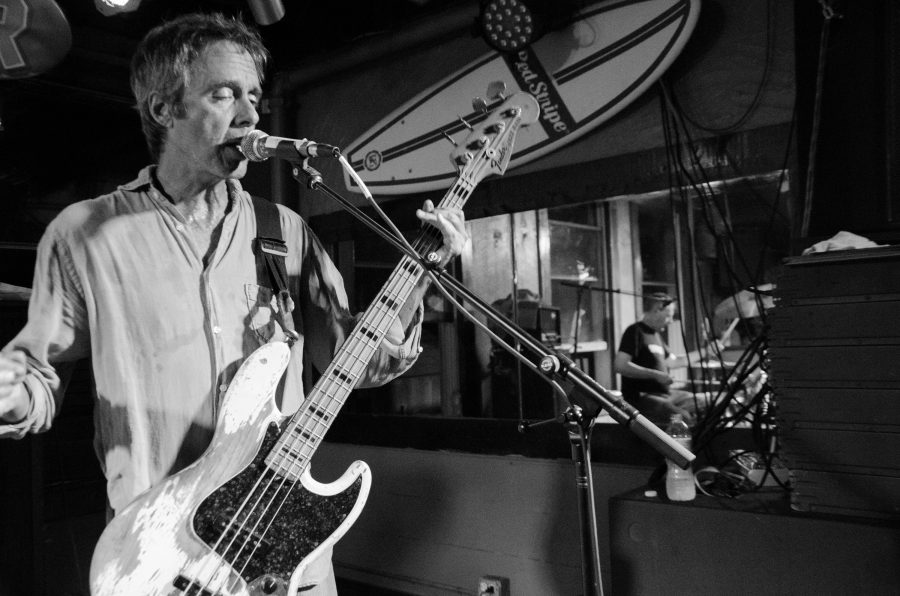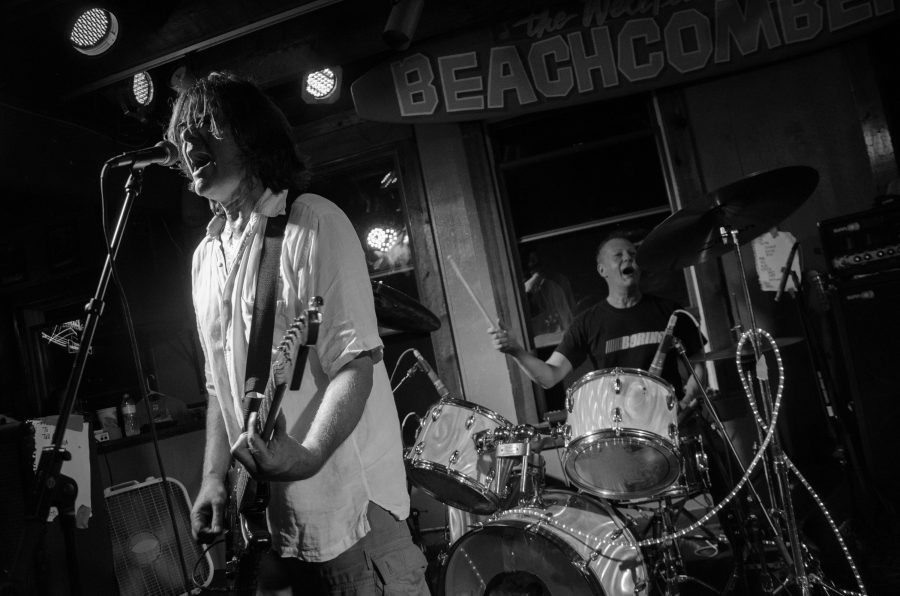Clint Conley plays bass for Mission of Burma, a post-punk outfit cited by Nirvana, Pearl Jam, and the Pixies as an influence. Burma in the early-1980s clamored into the Boston spotlight, before their guitarist’s tinnitus forced them to breakup. The band reunited for 2004’s ONoffON and has since released three more albums of their idiosyncratic punk and prog rock brew. The Mass Media caught up with Conley shortly after Burma opened for The Foo Fighters at Fenway Park on July 18:
MM: You guys are known for energetic shows. Any battle scars on your person or instruments?
CC: [laughs] My ears have suffered over the years, so I have tinnitus. Doesn’t interfere with my listening, but it’s always there. Instrument is pretty ragged. Looks like a medieval war instrument. But I only take partial credit for that – it was banged up when I got it.
MM: What made Burma’s sound influential?
CC: Well [pauses]. That’s difficult for me to say. I hear we were influential a lot, and take that as a compliment. But I don’t hear bands that sound like us. When we formed in ‘79, the punk explosion had happened and it was thrilling, but the vocabulary of punk was primitive. We were part of the expansion of that, using different tonalities and time signatures. We sort of combine the brains of progressive rock and the guts of punk.
MM: Has that sound changed over the years?
CC: For better or worse, I don’t think it has. We’re not the kind of band that tries on different personas or switches styles from album to album. I admire a lot of bands that do that, but it has never been who we are. We’re just dogged about making music we like.
MM: What are some inspirations, concepts, or ideas behind your music?
CC: That’s very hard to articulate. We like to think about, ‘What is a rock song? How is it built? How can we play with that idea without becoming unlistenable or overly clever?’ The important thing is to write songs people want to listen to again. We don’t have a lot of fans in the grand scheme of things, but the people who like our music are generally really passionate about it.
MM: Has your artistic process remained the same?
CC: I admit I’m in a bit of a fallow period right now. So it kind of comes and goes. When it’s happening, I start with a guitar in my lap and fool around until I find something interesting. Once that’s lodged in my head, it’s like one of those rock polisher machines turning and turning in my brain for weeks.
MM: Has ‘Burma ever reflected something about Boston? Is there a relationship between the band and the city?
CC: I don’t know. Could we have existed somewhere else? The predominant sound in Boston when we started was a rock and roll, punky, barroom sound. We weren’t like that at all. We were reacting to the scene. On the other hand, Boston college radio was always incredibly supportive. That airtime was a Boston phenomenon.
MM: What was the experience of opening for the Foo Fighters at Fenway like?
CC: It was a tremendous honor [to get the offer]. Then I was nervous about it in the months ahead. But once we got to the stadium it was so surreal. We walked past the Green Monster to get to our dressing room inside a batting cage. All this netting around us and everything. The sound on stage was superb. We just [looked at it as a personal experience and not a professional one]. And Grohl was very generous, said some nice things about the band [to the crowd].
MM: What does the band’s future look like? New album?
CC: We don’t have plans for one right now. The songwriting has slowed. We take offers as they come, but none of us have secret ambitions to become rock stars, much to the frustration of our manager. We take offers when they make sense.
MM: You’ve got the band, work at Chronicle as a producer, but also seem like a total family man. Are you living the dream with these three big parts of your life?
CC: I’m a very lucky guy. I like my job; it’s really fun and fulfilling. Those three spheres are like gears and they work together pretty well. When the music came back up after 20 years, it took a little adjustment in the family, but they are very supportive. The music thing is incredible. From time to time it goes away for a little while, so when we perform it feels fresh.
Guitarist Roger Miller and drummer Peter Prescott of Mission of Burma playing at the Beachcomber in Wellfleet, MA, on August 11th, 2012.






















































